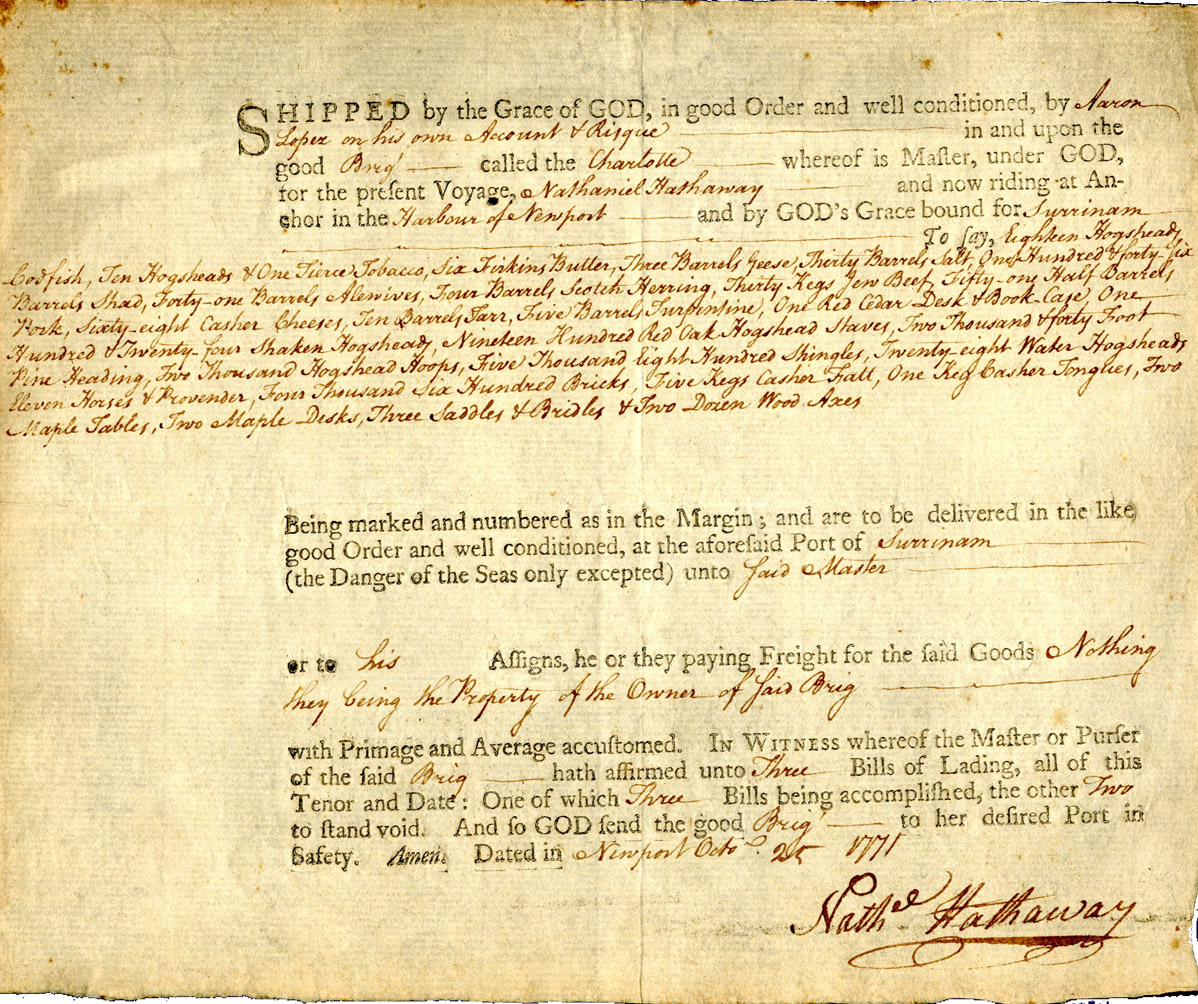This bill of lading, drawn up in 1771, describes the cargo shipped from Newport to Surinam by Aaron Lopez, a Sephardi merchant who lived as a New Christian in Portugal until 1752 when he fled Lisbon to join his brother in Newport. During the following decade, in the context of the French and Indian war, Lopez expanded the scope of his mercantile activities to Western Europe, the Caribbean, Newfoundland, Africa, and when this document was drawn up he had become one of Newport's leading merchants.
Several features of early modern commerce may be emphasized using this document, which belongs to the Library at the Katz Center for Advanced Judaic Studies, but which is one of many preserved in Aaron Lopez's papers, seized after his premature death (1782) in order to assess his indebtedness. The most striking feature is the variety of commodities composing this cargo. Even if Lopez is known for his contribution to the trade in spermaceti (the head matter of the sperm whale used in the manufacturing of candles), which does not appear in this cargo, this document epitomizes the nature of early modern trade, generally not specialized but, rather, organized along routes, the merchants trading in whatever wares are available or in demand and likely to bring about a profit: here together with naval stores, construction materials (bricks), we have items related to cooperage, (hogsheads, i.e., barrel staves or hoops, dismantled barrels,. . .), horses, pieces of furniture, tobacco, as well as a variety of foods intended for different groups of consumers: pork, butter, herring, but also kosher foods, "Jew beef," "Casher Fatt," "Casher Tongues." Thus, together with the standard routes and products of colonial trade, the sub-species of kosher trade features here prominently.
Aaron Lopez was providing similar wares to other Caribbean communities, namely Jamaica and Curaçao. This bill mentions that Aaron Lopez owns the brig - therefore no freight is to be paid - and not only the merchandise. Around 1772, Aaron Lopez owned about twenty ships. Another essential actor of this maritime trade appears here with the figure of the Captain: much of the enterprise rested on the Captain's skills and a trusting relationship between him and the merchant was essential to a successful venture, for which the captain was often rewarded with a commission on top of his salary.
The goods mentioned in this cargo are sent to Surinam, a Dutch possession, plausibly to Jewish and non-Jewish correspondents. This consignment is but one aspect of the links between Jewish communities in colonial America: a few years earlier, for instance, the Surinam Portuguese community had agreed to make a substantial donation to help the congregation Yeshuat Israel of Newport complete the building of its synagogue. Merchant networks, though implicit in this document, do not feature directly in it: Lopez's partners, in Newport, London or the Caribbean comprised Jews and non-Jews, Askenazi and Sephardi merchants. Other essential aspects of Aaron Lopez's mercantile activities do not appear here, such as his involvement in the slave trade, but should be recalled in order to understand the scope and nature of his mercantile activities.
